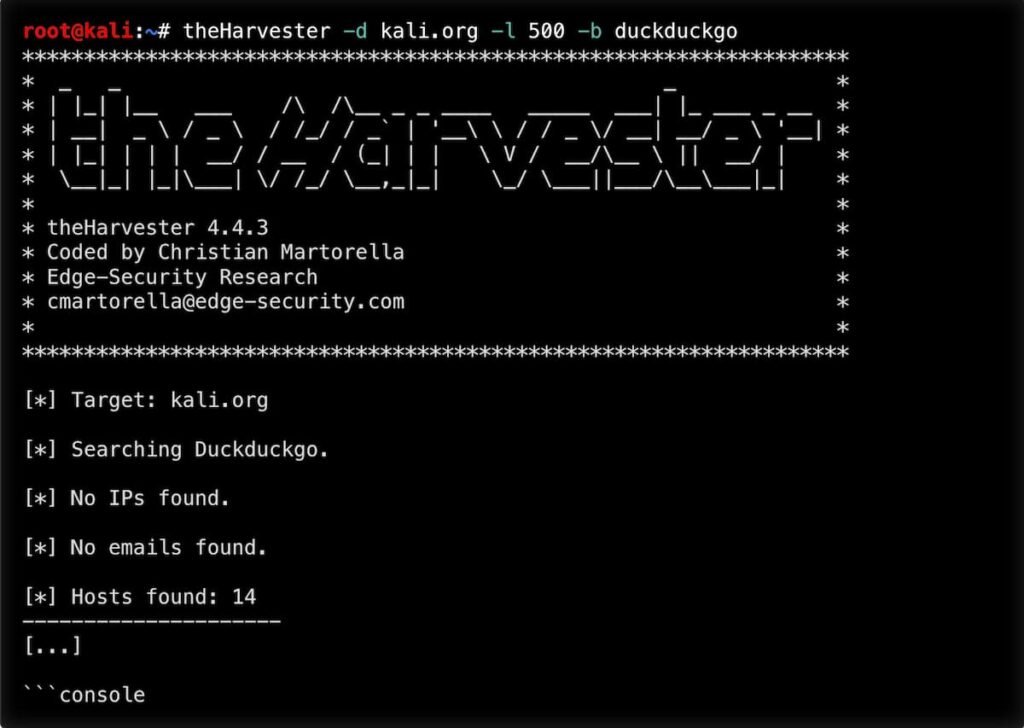How hard is it really to find someone’s email address online?
In today’s digital investigations—whether for cybersecurity, OSINT research, or marketing—the ability to extract email addresses quickly can make the difference between hours of frustration and a successful lead.
Three names stand out in this field: Email Extractor, Email Extractor Pro plug-in, and TheHarvester. Each approaches the problem differently: one acts like a lightweight spider, one works inside your browser, and the last is a heavyweight command-line tool favored by security analysts.
This article takes you through each of them step by step, showing how they perform in practice.
Email Extractor: The All-in-One Spider
The first stop is Email Extractor, a free all-in-one utility designed to scrape emails and more.
How It Works
- Download from the developer’s site.
- Run the installer and launch the program.
- Choose the extraction mode: email addresses, phone numbers, Skype IDs, or custom strings.
Practical Example
In one test, the search term was “network engineer USA”.
The software scanned the web and quickly returned 13 unique email addresses.
Limitations
- Saving results requires upgrading to the paid version.
- Accuracy depends on the keywords chosen.
- Useful for quick reconnaissance, less reliable for structured investigations.
Email Extractor Pro Plug-in: Inside Your Browser
While the standalone version scans broadly, the Email Extractor Pro plug-in works directly inside Firefox.
Setup
- Install the add-on from the Firefox marketplace.
- Accept the terms and restart the browser.
Practical Example
By searching for gmail.com in Google:
- With results per page set to 100, the plugin captured dozens of addresses at once.
- Changing the domain to
.edumultiplied the results dramatically, uncovering hundreds of academic emails in seconds.
Pros & Cons
- Pro: Seamless integration with search results.
- Pro: Quick to install and easy to use.
- Con: Limited by Google’s CAPTCHA checks and daily quotas.
- Con: Dependent on browser compatibility.
TheHarvester: The Professional’s Choice
For investigators who need serious scale, TheHarvester is the go-to. Built for penetration testers and OSINT specialists, it gathers not just emails but also subdomains, employee names, open ports, and server banners.
Key Options
-dspecify the target domain-llimit the number of results-bchoose the data source (Google, Bing, LinkedIn, etc.)-fsave results into a report
Practical Example
Running:
theHarvester -d gmail.com -l 300 -b all -f results.html
- The tool required API keys for some sources.
- After configuration, it produced a report in HTML format.
- Opening the report revealed 11,738 email addresses neatly categorized.
Strengths
- Handles large datasets with reporting built in.
- Allows integration of API keys for accuracy and speed.
- Ideal for red-team operations, digital forensics, and serious OSINT work.
Weaknesses
- Requires command-line knowledge.
- Setup (API keys, proxies) can be intimidating for beginners.
Comparing the Tools
| Tool | Ease of Use | Data Scope | Best Use Case |
|---|---|---|---|
| Email Extractor | Simple GUI | Emails, phones, Skype | Quick keyword-based searches |
| Email Extractor Pro Plug-in | Very easy | Emails from search engines | Fast scraping during browsing |
| TheHarvester | Advanced | Emails, subdomains, ports, employees | Security investigations, OSINT |
Why These Tools Matter
Email addresses are more than just contact points. They can reveal:
- Organizational structures (e.g., employee roles).
- Potential attack surfaces for phishing.
- Hidden domains or services linked to a company.
For OSINT researchers and cybersecurity teams, they’re often the starting line in mapping a digital footprint.
From a simple spider to a professional-grade harvester, email extraction tools cover the spectrum of needs. Email Extractor is quick and user-friendly, the Pro plug-in adds convenience inside your browser, while TheHarvester turns email hunting into a full-scale intelligence exercise.
Whichever tool you test, remember: the goal is knowledge, not exploitation. Used responsibly, these applications can support investigations, strengthen cybersecurity defenses, and shed light on the hidden layers of the internet.
🔍 Now it’s your turn: Try running a small test with Email Extractor or TheHarvester on a domain you’re legally allowed to scan. Compare the results, see how they differ, and decide which tool fits your workflow.




